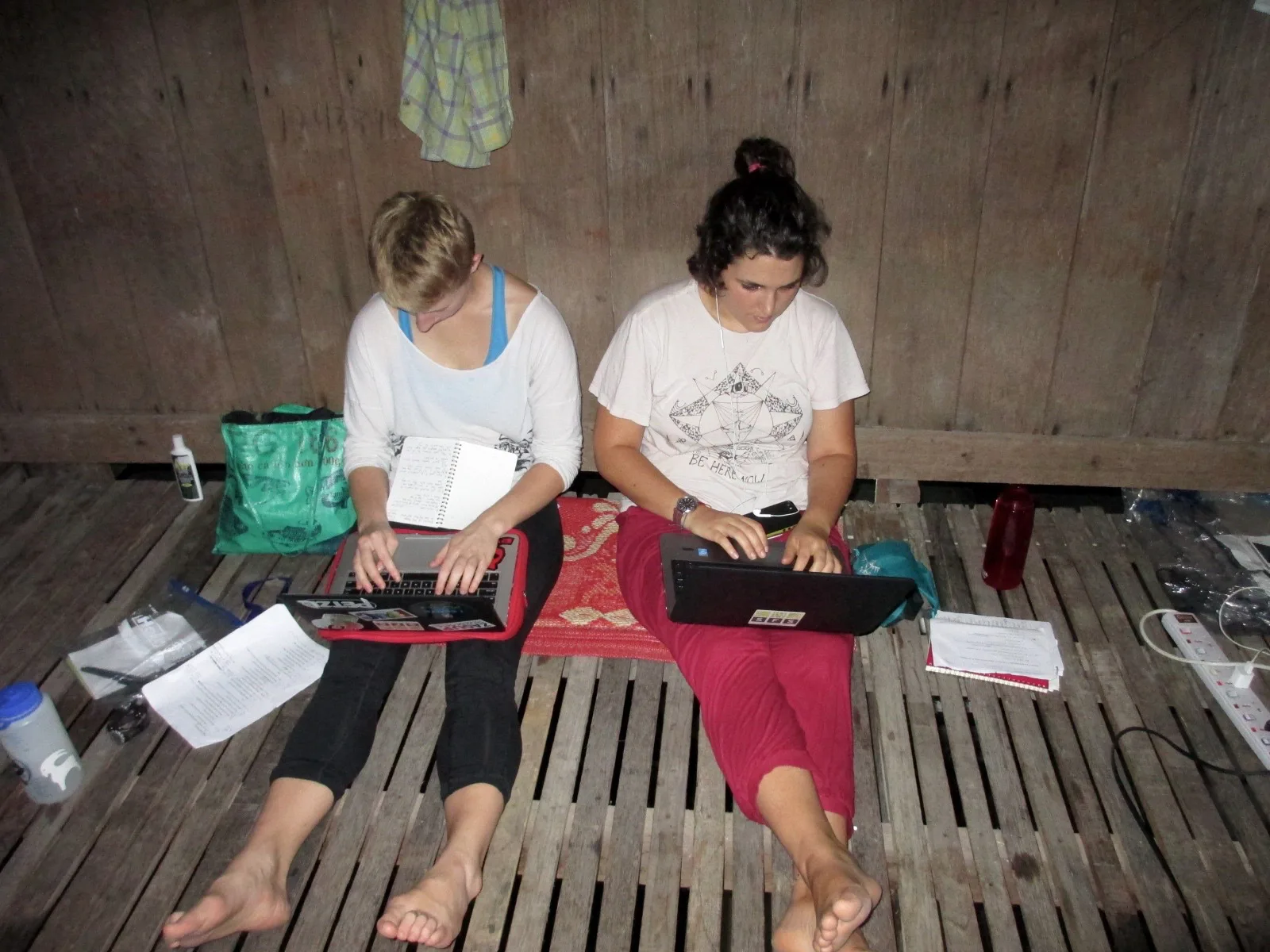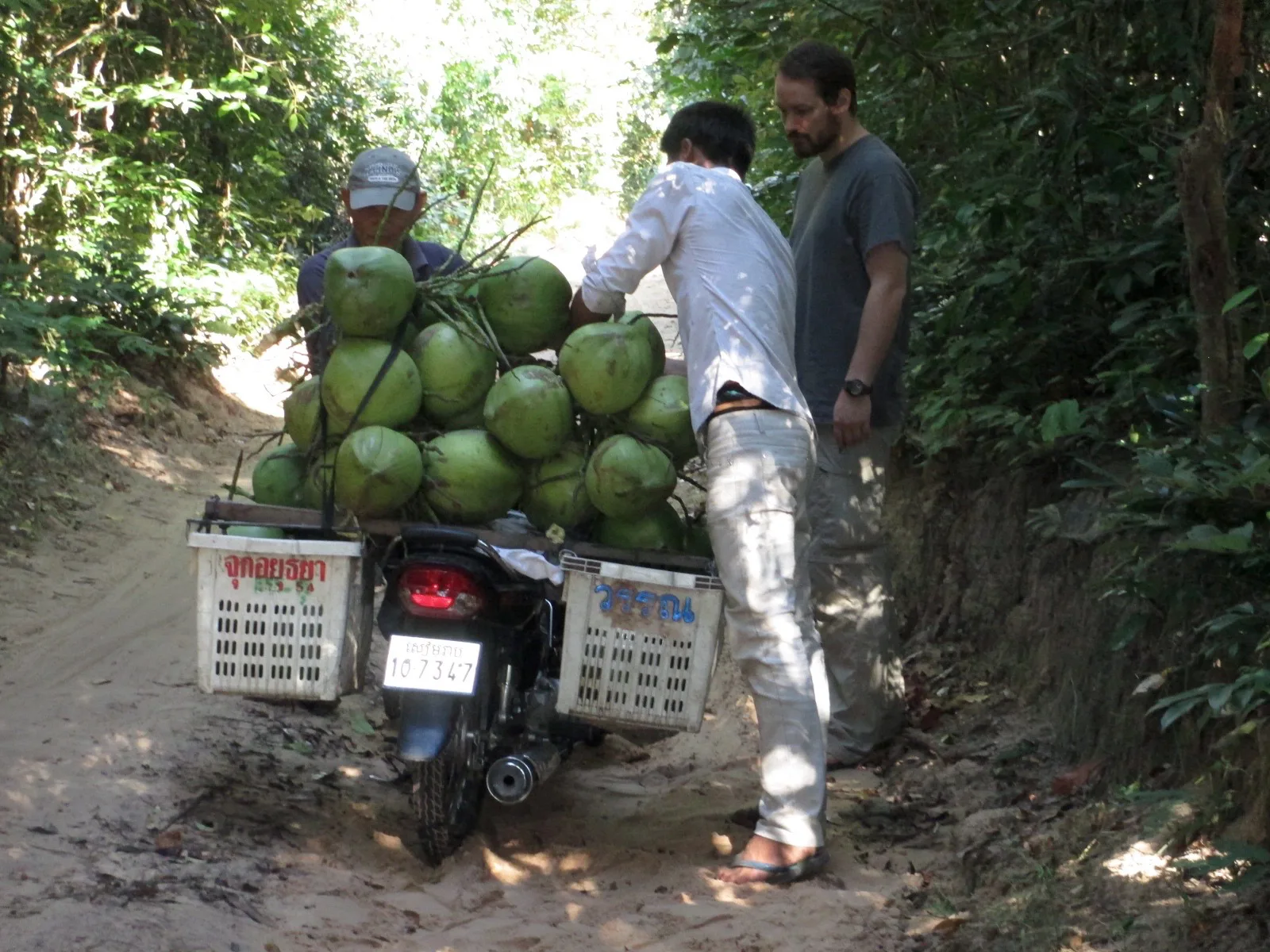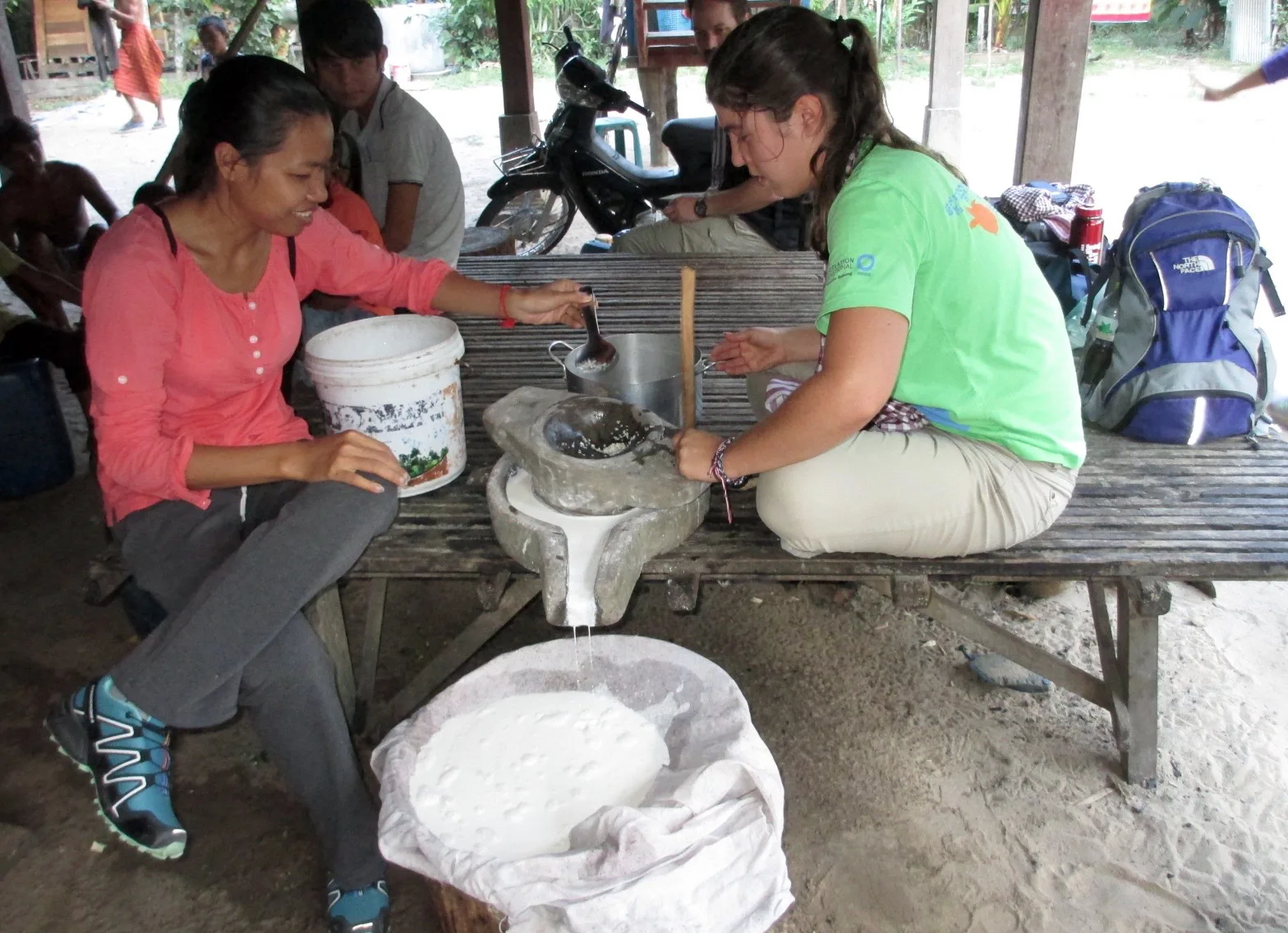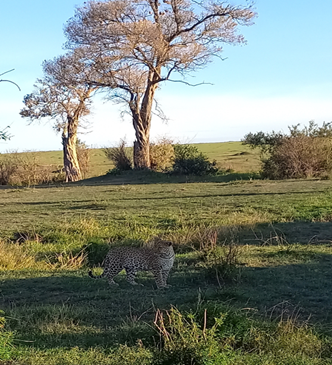Immersion On the Mountain
Here at the Center for Mekong Studies, we are midway through our Directed Research (DR) fieldwork. This semester, all three of our DR groups are staying in the villages where our research is being conducted. For two of our groups, this has meant staying in a village nestled deep within Phnom Kulen National Park, up on the plateau. One of my students is exploring the drivers behind a shift from a mixed crop style of swidden agriculture to permanent plots planted solely with cashew. Another is documenting the social history of two villages. We joke that we are hunting for elders.
There has been little research done on the agricultural practices of the families living on the mountain, and virtually no written documentation on the histories of the villages inside this threatened protected area. The villages on the mountain have been at peace for more than fifteen years now. Yet painful traces of that war remain–in the missing family members mentioned in stories, and in the many landmine victims of the late war years. Being allowed to conduct research in the villages of Anlong Thom and Phum Tmei is a great privilege, yet it also poses many challenges. The elders of these two villages are not accustomed to telling their stories to outsiders like ourselves. When approached for an interview, many will say that they don’t remember the stories, or that they don’t know how to answer questions. But there are also others who are delighted to share their memories. People willing to speak about farming are more ready subjects–the trick is to find them at home.
My students are learning the subtle skills of social research, which is so much more than making one’s way carefully through a set of questions. They are experiencing firsthand the sometimes frustrating and often exhilarating process of doing research with human subjects. They are learning that no matter how clear one’s questions, things are often left unsaid. They are walking the dusty paths of the villages looking regretfully at the empty homes of the farmers who have gone to their distant fields to harvest rice. They are experiencing the pleasure of seeing a family resting on their bamboo beds beneath their homes and being cheerfully invited to sit. They are learning the way an elderly man may tell a story, then retell it entirely differently a few minutes later, contradicting himself and changing all the dates. They are seeing the way a person may claim to know nothing at all on a topic, only to soon be talking away at light speed and resisting all efforts to be slowed down for the benefits of translation. They are learning how to understand the phrasing of the Khmer translators and how to translate that into more familiar English terms. They are learning to assume nothing, and to probe further into the answers they are given.

There is a unique richness to being in the place one is studying. The tools Rose asks about are being carried on the shoulders of the people heading to and from their fields. People point to different places around the village as they tell Dario about historical events. Rose is often told by subjects that the farmers use no machines in their fields, although she can see the grass cutting machine leaning against the side of the house. Oh that machine, they say, if she inquires, and tell her when they bought it and for how much.
Beyond our interviews, small and beautiful moments happen. Children gather around us and peer curiously at the students’ notes. Rose tries her hand at grinding rice into the smooth batter used to coat deep-fried bananas. Dario and our fearless driver, Uncle Si, assist a man who has wrecked his motorbike on the rough road while attempting to carry two heavy panniers of coconuts to the nearest market. In the late afternoon we walk home along the village paths, past newborn calves and foraging chickens, through cashew orchards and beneath towering coconut palms. A once strange place rapidly becomes familiar, and the inhabitants of the houses known and greeted. The sounds of the village night surround the students as they sit on the airy veranda, typing up their data into spreadsheets for analysis. And then all of us sleep on mattresses arranged under vast mosquito nets on the planks of the stilted wooden house, wrapped in blankets against the cool mountain air. Until we rise to the sounds of leaves being swept and grass mats beaten, and creep out from beneath our nets, and prepare to go out again.

The data we gather matters. Yet on another level, one of the great “findings” of doing social research in Cambodia is the chance to glimpse and more fully understand the lives of others, living in a place that is both like and unlike the places we may call home.

→ River Ecosystems & Environmental Ethics Semester Program in Cambodia
Related Posts

Restoration on a Cinder Cone: A Syntropic Story

Camila Rojas: Alumni Spotlight⭐
